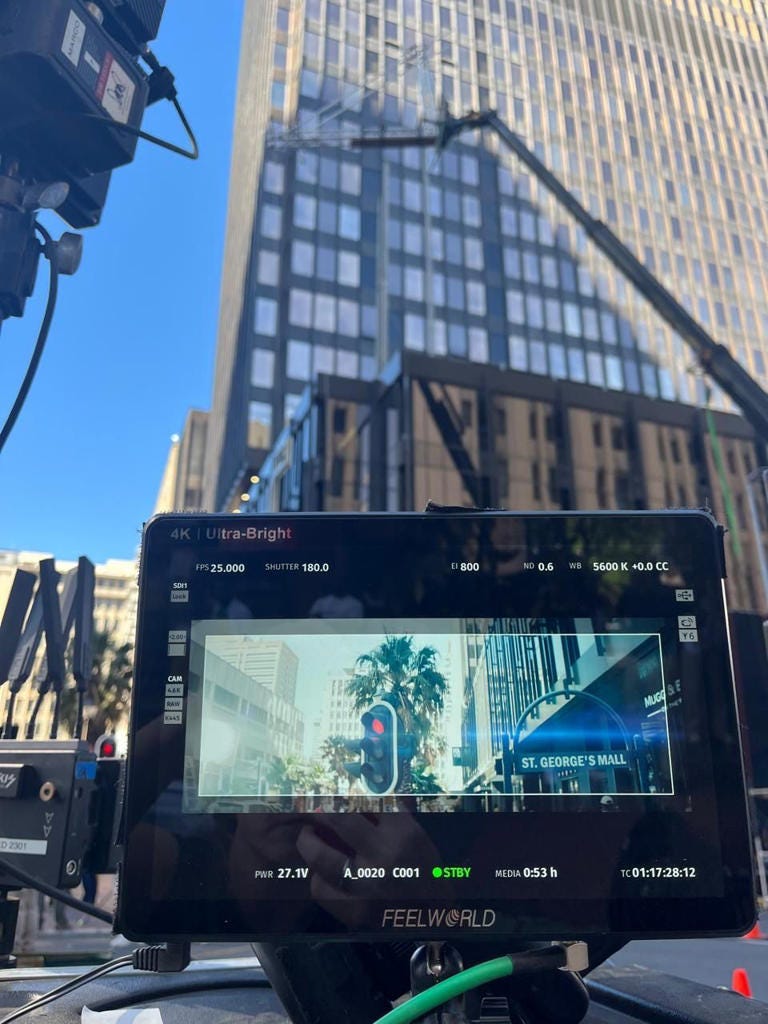After a R400m Netflix Loss, South Africa Unveils a Special Visa to Win Filmmakers Back
South Africa didn’t lose a Netflix production worth R400 million because of talent shortages or weak infrastructure. It lost it to bureaucracy. Paper. Delays. A visa system so outdated it pushed an entire international crew to pack up and leave.
For years, SA’s film sector has been the continent’s most promising gateway to global production money, yet also the most undermined by its own administrative machinery. This time, the price tag was big enough to force a reckoning.
Now, with the launch of the Screen Talent and Global Entertainment Scheme (STAGES) — a digital fast-track visa system promising 24-hour approvals — the government is trying to reposition itself as a partner instead of a barrier. But the deeper story isn’t the reform itself. It’s what the reform reveals about how Africa treats its creative economy, and how quickly it reacts only after global money walks away.
This is not a story about visas.
It’s a story about urgency, reputation, and the economics of hesitation.
SA Didn’t Introduce a New Visa System — It Introduced an Apology
STAGES is being framed as innovation, but it functions more like an apology.
For years, the global film industry has tiptoed around South Africa’s “incredible potential” narrative — a pleasant euphemism for a market that has everything except speed. Producers have privately complained. Production companies have publicly warned. Yet change only came when Netflix took its money elsewhere.
In the creative economy, that’s the real penalty. Not the R400m loss itself, but the signal it sends:
If a country can’t guarantee entry for actors and crew, it can’t guarantee production stability.
STAGES is SA’s way of saying,
We heard you. We felt it. We can’t afford another embarrassment.
The Visa Fix Isn’t About Filmmaking — It’s About Keeping SA on the Global Map
South Africa is not competing with Ghana or Kenya. It’s competing with Canada, Spain, Mexico, New Zealand, Morocco, and Colombia — countries that have spent years optimizing themselves for global production dollars.
Those countries:
Move visas within days, not weeks
Incentivize productions with predictable tax schemes
Maintain film offices that function like concierge services
In that world, SA’s old visa model wasn’t just inconvenient.
It was disqualifying.
So STAGES is more than a procedural update, it’s a survival strategy. Because prestige alone doesn’t keep studios coming. Predictability does.
The R400m Loss Hurt, But It Revealed the Bigger Issue — Africa Reacts Only When Money Leaves
The Netflix incident is a microcosm of a larger African pattern:
We wait for the loss, then scramble for reform.
Whether it’s music royalties, tourism frameworks, creator taxation, or film incentives, African creative industries frequently operate on a crisis-response cycle. Innovation arrives only after external pressure.
What makes STAGES interesting is not that SA acted — but that it acted quickly, decisively, and digitally. This is the kind of responsiveness creatives and production houses have been demanding for a decade.
If SA sustains this pace, it won’t just fix a visa problem.
It will fix a reputation problem.
Global Studios Don’t Want Beauty — They Want Reliability
South Africa has always marketed its landscapes, its light, its production talent. But none of that matters if a studio can’t get 60 crew members into the country without anxiety.
Global productions don’t run on charm.
They run on logistics.
A R400m Netflix production moves with military precision — flights, schedules, timelines, equipment, insurance, cast contracts. A single delay can cost thousands. A visa delay can cost millions.
STAGES attempts to give SA what the global industry values most:
certainty.
A 24-hour turnaround isn’t about convenience, it’s about signalling,
“You can bet your budget on us.”
STAGES Is Only a First Step — And It Won’t Save SA Alone
A fast visa is good, but the film economy is an ecosystem. And ecosystems collapse when one part moves faster than the rest.
To convert this reform into real competitive advantage, SA still needs to address:
1. Film incentives that feel predictable, not political
Consistency beats generosity. Studios want guarantees.
2. Infrastructure expansion in second-tier cities
Cape Town cannot carry the entire country.
3. Safety and insurance frameworks for large-scale productions
Budgets rise when risk rises.
4. A global charm offensive to repair trust
After the R400m fiasco, SA needs proactive diplomacy, not passive marketing.
If STAGES is step one, these are steps two through five.
What the Move Signals for the Continent
Here’s the part African policymakers can’t afford to ignore:
The global creative economy rewards whoever makes it easiest to create.
If South Africa’s digital fast-track system works, it shifts expectations across the continent. Ghana, Kenya, Nigeria, Mauritius — all markets positioning themselves as global film destinations — now face a new benchmark.
This is the first time Africa’s most established film production hub is behaving with startup urgency. That alone will force others to respond.
SA is not just competing outward.
It’s competing inward — against a continent finally waking up to its creative economic potential.
What Happens Next Will Determine Everything
A digital platform is easy to announce.
It’s harder to operate.
If STAGES delivers the promise of 24-hour turnarounds — consistently, transparently, without bureaucratic regression — SA will instantly reposition itself as the most production-ready country on the continent.
But if it collapses into slow responses, broken systems, and quiet excuses, the industry will remember the Netflix loss as a warning SA refused to learn from.
The global film industry is forgiving but not forgetful.
You don’t get many chances to prove reliability.
The Bottom Line
South Africa didn’t launch a new visa system.
It launched a new narrative.
A narrative where the creative economy is treated as an industry, not a hobby.
A narrative where delays are not cultural quirks but economic threats.
A narrative where the government finally acts before the next R400m walks away.
If SA keeps this momentum, the Netflix loss won’t define it.
The response will.
And maybe, for the first time in a long while, the world will see SA not as a beautiful risk, but as a reliable partner — the one thing global productions value more than anything else.
A guest post by
A curious mind exploring the crossroads of creativity and insight.






